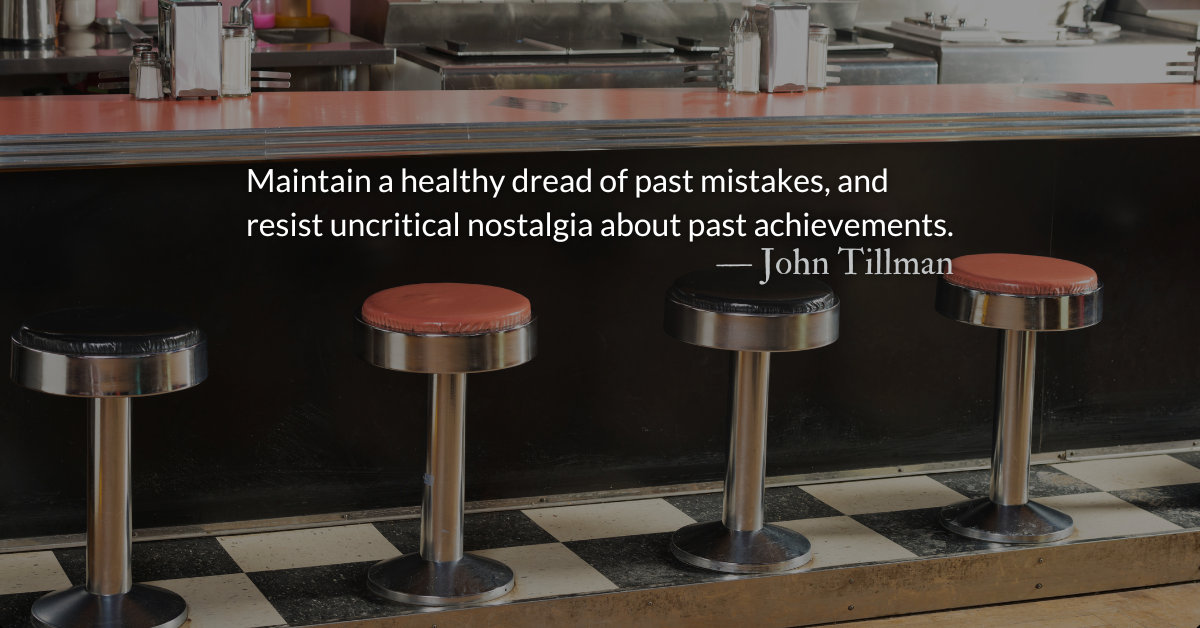Links for today’s readings:
Nov 24 Read: 1 Chronicles 19-20 Listen: (5:02) Read: Psalms 94 Listen: (2:08)
Scripture Focus: 1 Chronicles 20.1-3
1 In the spring, at the time when kings go off to war, Joab led out the armed forces. He laid waste the land of the Ammonites and went to Rabbah and besieged it, but David remained in Jerusalem. Joab attacked Rabbah and left it in ruins. 2 David took the crown from the head of their king—its weight was found to be a talent of gold, and it was set with precious stones—and it was placed on David’s head. He took a great quantity of plunder from the city 3 and brought out the people who were there, consigning them to labor with saws and with iron picks and axes. David did this to all the Ammonite towns. Then David and his entire army returned to Jerusalem.
Reflection: Bad Feelings And Good Old Days
By John Tillman
Chronicles’ first readers were probably Ezra’s temple rebuilders and Nehemiah’s wall rebuilders. For this audience, the chronicler omitted many of David’s failures, presenting a more idealized founding story for Jerusalem and the temple. However, he dropped hints reminding readers that all was not well in “the good old days.”
In nearly every Star Wars story someone says, “I’ve got a bad feeling about this.” It’s the longest running gag in film history, but it’s more than a gag. This thematic connection between stories indicates dread and foreshadows danger. When audiences hear it, suspense rises as they recall what happened the last time they heard it.
For the chronicler’s audience “In the spring, at the time when kings go off to war” would have rung alarms like “I’ve got a bad feeling about this” does for Star Wars fans. In an oral culture, where most people had scripture read to them, they would have heard it repeatedly. It would remind them of a well-known and dreadful story of danger and foreshadowing.
The phrase highlighted what David ought to have done in opposition to what he did. Instead of going to war, David went to his roof and spied on Bathsheba. (2 Samuel 11.1-2) What happened next began a cascading series of scandals, rapes, murders, deaths, and a civil war that exiled David from Jerusalem to the wilderness he wandered in during the days of Saul.
Chronicles’ readers didn’t just know this story—they lived it. They were returning from exile in the “wilderness” of Babylon following their own cascading series of scandals. That generation could focus on David’s positives because they had dealt with their past sins. They weren’t in denial or ignorant. But as reformers often do, they recalled and were encouraged by the best ideals and actions of the past.
Reflecting on positive ideals and actions of the past can encourage us in today’s struggles. However, as Billy Joel wrote, “the good old days weren’t always good and tomorrow ain’t as bad as it seems.” We can’t build better tomorrows on the foundation of a falsified past. If we draw encouragement from the past by erasing or minimizing sin, we deceive ourselves and doom our future.
Are we dealing honestly with the past? Are we justifying ourselves or pursuing justice?
When remembering “golden ages,” use wisdom. Maintain a healthy dread of past mistakes, and resist uncritical nostalgia about past achievements.
Divine Hours Prayer: The Refrain for the Morning Lessons
Purge me from my sin, and I shall be pure; wash me, and I shall be clean indeed. — Psalm 51.8
– From The Divine Hours: Prayers for Autumn and Wintertime by Phyllis Tickle.
Read more: Ancient #MeToo Story
As with David, authority has been used as a tool to shift blame to the victim, silence any witnesses, or hide the crime in darkness.
Read more: Have Mercy—Guided Prayer
David sinned against God by bringing harm to those God cared for, who included Bathsheba, Uriah, Joab, and the entire nation.


